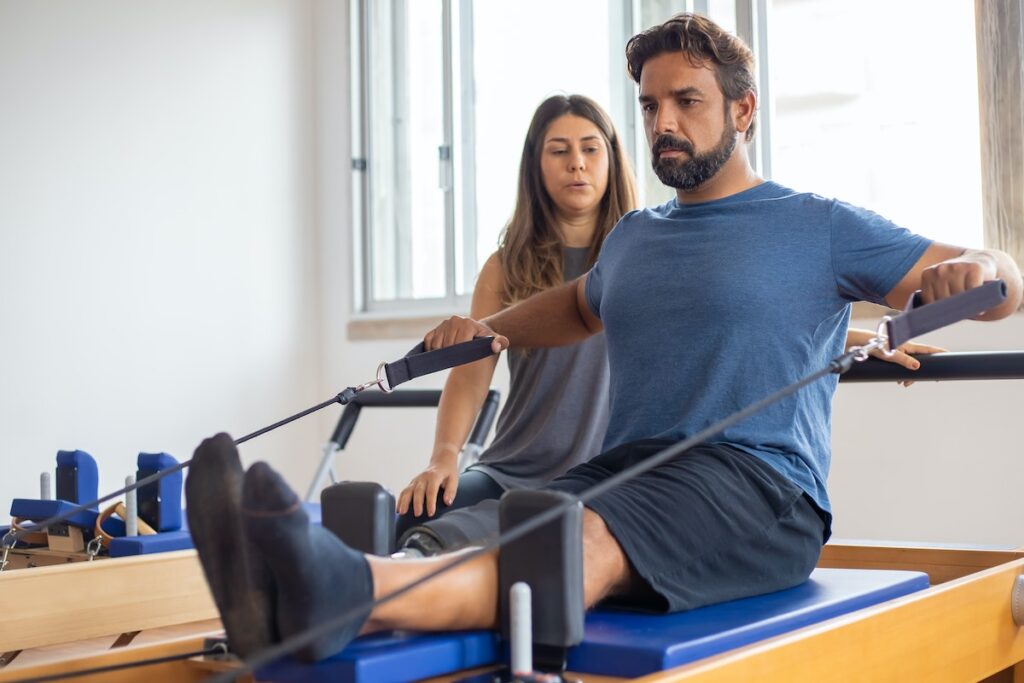- Follow doctor’s instructions and physical therapy, and take prescribed medicines for post-op care.
- Schedule follow-up visits with your doctor for check-ups, scans, and medication adjustments.
- Eat nutritious meals to help heal damaged tissue and reduce inflammation.
- Learn home remedies such as warm compresses, stretching, and relaxation techniques to manage pain.
- Allow your body to rest and take things one step at a time. A slow recovery is critical to successful rehabilitation after a severe injury or surgery.
A severe physical injury can have life-altering consequences, both on an emotional and a physical level. In addition to the immediate pain and discomfort that comes with them, their long-term effects can be devastating. According to the Centers for Disease Control and Prevention (CDC), more than 28 million people are treated in emergency rooms yearly due to traumatic injuries. Of those 28 million, over 2 million require hospital admission for their injuries, making it evident that severe physical injuries are pretty standard.
The initial recovery following a significant injury is often lengthy, requiring rest, rehabilitation, and time to heal damaged tissue. Depending on the severity of the injury, this period can take months or even years before an individual fully recovers. During this period, there is an increased risk of developing secondary complications such as infection or chronic pain due to the long-term immobility of injured body parts.
Surgery might be necessary to stabilize the injury or address any organ damage. However, you might not know what to do. Here are a few tips to help you.
Follow Doctor’s Instruction
Once you have been discharged from the hospital, follow your doctor’s instructions. Those medical professionals can help you develop and follow an effective post-op care routine that will help you fully recover. Here are a few steps that might be necessary for your post-op care journey:
Physical Therapy
Surgery likely means you will need to spend time away from your everyday activities, including exercise. Physical therapy is recommended to get back on track following surgery and should be part of your recovery routine. Your doctor can recommend a course of action that best suits your needs.
Medicine Prescriptions
Your doctor might prescribe medication to aid in the healing process or manage any pain related to the injury. Taking medicines according to their instructions is essential to ensure optimal outcomes and reduce any potential risks associated with improper dosing.
Follow-Up Visits
Doctors typically schedule follow-up visits to ensure your recovery is on track. During these appointments, they might adjust medication doses or the therapy regime if needed. You might need MRI scans to help check the progress of the healing process. If you do not like enclosed spaces, you will have to seek an upright MRI scan in a private clinic.
Follow Dietary Guidelines
Proper nutrition is essential for recovery following a severe injury or surgery. Eating well-balanced meals with plenty of fresh fruits and vegetables can help heal damaged tissue, replenish lost energy, and reduce inflammation.
Learn Home Remedies

Of course, you do not have to go to the doctor whenever you experience discomfort related to your surgery. It can be expensive, especially if you do not have insurance. Fortunately, you can learn home remedies to manage any pain associated with your injury. Here are a few you can study:
- Use warm or cold compresses to reduce inflammation.
- Take a hot shower or use a heating pad to help soothe any muscle pain caused by the injury.
- Try gentle stretches that you can do from home.
Physical therapists often provide personalized exercises that you can do in the comfort of your home. You can also use relaxation techniques, such as meditation or breathing exercises, to help reduce stress. Do not forget to get enough rest. Your body needs time to recover from a severe injury, so you must take all the necessary measures to ensure a successful recovery process.
Work Your Way Up

Patience is a critical factor in the successful recovery from any severe injury. After such an incident, it might take weeks, months, or even years to regain full mobility and strength. The body needs time to heal, so it is important not to push it beyond its limits until it fully recovers.
As your body heals, you may experience various levels of discomfort or pain. It is common to feel disheartened by these changes and frustrated by the lack of progress in your rehabilitation. However, you must remain patient and take things one step at a time. Working closely with your doctor and physical therapist can help you make steady progress toward reaching the level of health you want.
It is also important to note that proper nutrition is integral to healing. Eating well-balanced meals with plenty of fresh fruits and vegetables can help replenish lost energy, reduce inflammation, and assist damaged tissue in healing faster. Additionally, some foods are known for their anti-inflammatory properties, so introducing them into your diet may be beneficial for a quicker recovery.
Final Thoughts
Severe physical injuries can have long-term emotional and physical effects on an individual’s life. To ensure a successful recovery, taking all the necessary measures to protect yourself from any potential risks associated with post-op care is essential. Even though recovery might be slow at times, remember that you are in control of your progress, and never forget to stay positive throughout the entire process.




